
Space Shuttle Columbia (OV-102) was a Space Shuttle orbiter manufactured by Rockwell International and operated by NASA. Named after the first American ship to circumnavigate the upper North American Pacific coast and the female personification of the United States, Columbia was the first of five Space Shuttle orbiters to fly in space, debuting the Space Shuttle launch vehicle on its maiden flight in April 1981. As only the second full-scale orbiter to be manufactured after the Approach and Landing Test vehicle Enterprise, Columbia retained unique features indicative of its experimental design compared to later orbiters, such as test instrumentation and distinctive black chines. In addition to a heavier fuselage and the retention of an internal airlock throughout its lifetime, these made Columbia the heaviest of the five spacefaring orbiters; around 1,000 kilograms heavier than Challenger and 3,600 kilograms heavier than Endeavour. Columbia also carried ejection seats based on those from the SR-71 during its first six flights until 1983, and from 1986 onwards carried an external scientific instrument bay on its vertical stabilizer.

Hollywood is a neighborhood in the central region of Los Angeles, California. Its name has come to be a shorthand reference for the U.S. film industry and the people associated with it. Many of its studios such as Columbia Pictures, Disney, Paramount Pictures, Warner Bros., and Universal Pictures were founded there; Paramount still has its studios there.
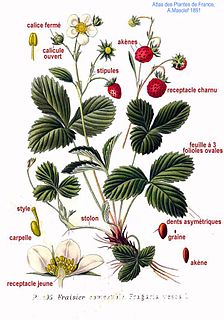
Fragaria is a genus of flowering plants in the rose family, Rosaceae, commonly known as strawberries for their edible fruits. There are more than 20 described species and many hybrids and cultivars. The most common strawberries grown commercially are cultivars of the garden strawberry, a hybrid known as Fragaria × ananassa. Strawberries have a taste that varies by cultivar, and ranges from quite sweet to rather tart. Strawberries are an important commercial fruit crop, widely grown in all temperate regions of the world.

The Cascade Range or Cascades is a major mountain range of western North America, extending from southern British Columbia through Washington and Oregon to Northern California. It includes both non-volcanic mountains, such as the North Cascades, and the notable volcanoes known as the High Cascades. The small part of the range in British Columbia is referred to as the Canadian Cascades or, locally, as the Cascade Mountains. The latter term is also sometimes used by Washington residents to refer to the Washington section of the Cascades in addition to North Cascades, the more usual U.S. term, as in North Cascades National Park. The highest peak in the range is Mount Rainier in Washington at 14,411 feet (4,392 m).

The West Coast of the United States, also known as the Pacific Coast, Pacific states, and the western seaboard, is the coastline along which the Western United States meets the North Pacific Ocean. The term typically refers to the contiguous U.S. states of California, Oregon, and Washington, but sometimes includes Alaska and Hawaii, especially by the United States Census Bureau as a U.S. geographic division.
Columbia Pictures Industries, Inc. is an American film production and distribution studio that is a member of the Sony Pictures Motion Picture Group, a division of Sony Entertainment's Sony Pictures Entertainment, itself is one of the Big Five studios and a subsidiary of the multinational conglomerate Sony.

Kalpana Chawla was an American astronaut and engineer who was the first woman of Indian origin to go to space. She first flew on Space Shuttle Columbia in 1997 as a mission specialist and primary robotic arm operator.

The Space Shuttle Columbia disaster was a fatal incident in the United States space program that occurred on February 1, 2003, when the Space ShuttleColumbia (OV-102) disintegrated as it reentered the atmosphere, killing all seven crew members. The disaster was the second fatal accident in the Space Shuttle program, after the 1986 breakup of Challenger soon after liftoff.

Delmer "Del" Lord was a Canadian film director and actor best known as a director of Three Stooges films.

David Oppenheimer was a successful entrepreneur, the second mayor of Vancouver, British Columbia, and a National Historic Person of Canada.

In the nineteenth century, the Oregon Country was a disputed region of the Pacific Northwest of North America. The region was occupied by British and French Canadian fur traders from before 1810, and American settlers from the mid-1830s, with its coastal areas north from the Columbia River frequented by ships from all nations engaged in the maritime fur trade, most of these from the 1790s through 1810s being Boston-based. The Oregon Treaty of 1846 ended disputed joint occupancy pursuant to the Treaty of 1818 and established the British-American boundary at the 49th parallel.

Wilde Lake is a man-made drainage reservoir dug in 1966 and also named after the surrounding "village" of neighborhoods located in Columbia, Maryland, just north and west of Columbia Town Center. The village was the first part of Columbia's "New Town" to be built in the late 1960s, James W. Rouse and Frazar B. Wilde formally opened the neighborhood on June 21, 1967. The lake and village are named for Frazar B. Wilde, a past chairman of the board of Connecticut General Life Insurance Company and former employer of James Rouse. In 1963, the company agreed to fund the secret land purchases and, in return, acquired an equity participation. This arrangement was subsequently formalized by the creation of The Howard Research and Development Corporation, the joint venture established to develop Columbia.

Sony Pictures Entertainment Inc. is an American diversified multinational mass media and entertainment studio conglomerate that produces, acquires, and distributes filmed entertainment through multiple platforms. Through an intermediate holding company called Sony Film Holding Inc., it is operated as a subsidiary of Sony Entertainment Inc., which is itself a subsidiary of the multinational technology and media conglomerate Sony Group Corporation. Based at the Sony Pictures Studios lot in Culver City, California as one of the "Big Five" major American film studios, it encompasses Sony's motion picture, television production and distribution units. Its sales in the fiscal year 2020 was reported to be $7.16 billion.
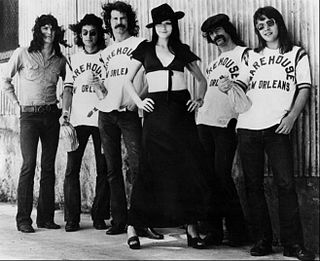
It's a Beautiful Day is an American band formed in San Francisco, California, in 1967, featuring vocalist Pattie Santos along with violinist David LaFlamme and his wife, Linda LaFlamme, on keyboards.

Peter Skene Ogden was a British-Canadian fur trader and an early explorer of what is now British Columbia and the Western United States. During his many expeditions, he explored parts of Oregon, Washington, Nevada, California, Utah, Idaho, and Wyoming. Despite early confrontations with the Hudson's Bay Company (HBC) while working for the North West Company, he later became a senior official in the operations of the HBC's Columbia Department, serving as manager of Fort Simpson and similar posts.
The Student Academy Awards are presented by the Academy of Motion Picture Arts and Sciences in an annual competition for college and university filmmakers.
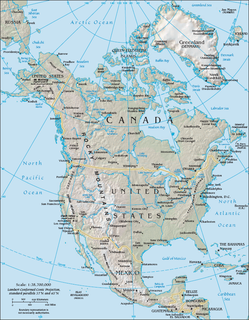
The North American Cordillera, sometimes also called the Western Cordillera of North America, the Western Cordillera or the Pacific Cordillera, is the North American portion of the American Cordillera, the mountain chain system (cordillera) along the western coast of the Americas. The North American Cordillera covers an extensive area of mountain ranges, intermontane basins and plateaus in Western/Northwestern Canada, Western United States and Mexico, including much of the territory west of the Great Plains.
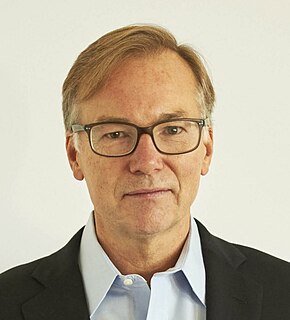
Steve Coll is an American journalist, academic and executive. He is currently the dean of the Columbia University Graduate School of Journalism, where he is also the Henry R. Luce Professor of Journalism. A staff writer for The New Yorker, he served as the president and CEO of the New America think tank from 2007 to 2012.
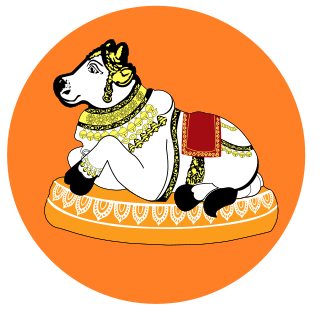
The Kāpālika tradition was a Tantric, non-Puranic form of Shaivism in India. The word is derived from kapāla, meaning "skull", and Kāpālika means the "skull-men". The Kāpālikas were an extinct sect of Shaivite ascetics devoted to the Hindu god Shiva dating back to the 8th century CE, which traditionally carried a skull-topped trident (khatvanga) and an empty skull as a begging bowl. Other attributes associated with Kāpālikas were that they revered the fierce Bhairava form of Shiva by emulating his behavior and characteristics, smeared their body with ashes from the cremation grounds, wore their hair long and matted, and engaged in rituals with blood, meat, alcohol.
The Searle Scholars Program is a career development award made annually to the 15 young US professionals in biomedical research and chemistry considered most promising. The award was established in 1980 by a donation from the Searle family, and is operated by the Chicago Community Trust.

















